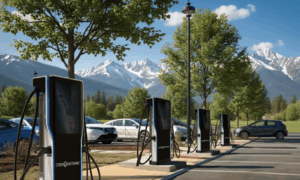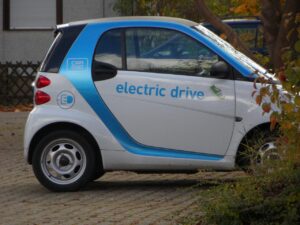
Home / EV Charging News / What is EV auto charge?
As electric vehicles continue to evolve, convenience features are becoming just as important as performance and battery range. One of the most innovative improvements in the charging experience is EV auto charge — a system designed to make powering your vehicle as effortless as plugging in your smartphone. With this technology, your EV can automatically start charging the moment it’s connected to the station, with no need to open an app, tap a card, or go through any extra steps.

EV auto charge represents the future of seamless charging, giving drivers more comfort, simplicity, and confidence on the road. Let’s take a closer look at how it works, why it matters, and what makes it a key feature in the next generation of EV infrastructure.
EV auto charge simplifies the charging process by automatically starting a session as soon as your vehicle is connected. The system works through several key steps:
This plug-and-charge approach saves time and makes EV charging more convenient and reliable, turning a previously multi-step process into a simple, hands-free experience.
EV auto charge offers a range of advantages that make charging electric vehicles simpler, faster, and more convenient for drivers. One of the most obvious benefits is time savings: you no longer need to open an app, tap an RFID card, or manually start the charging process — simply plug in your car, and charging begins automatically.
Another major advantage is convenience. With fewer steps to initiate charging, the process becomes virtually hands-free, allowing drivers to focus on their journey instead of managing payments or station interactions. This is especially useful for daily commuters, long-distance travelers, or anyone who uses public charging stations frequently.
Enhanced security is also a key benefit. Automatic authentication ensures that only authorized vehicles can start a session, reducing the risk of unauthorized use or errors in billing. Additionally, auto charge provides predictability and reliability. You can monitor charging progress in real time, set desired battery levels, and have confidence that your vehicle will charge correctly every time.
While EV auto charge makes charging simple and seamless, there are certain situations where it might not function as expected. Compatibility issues are the most common — not all electric vehicles support auto charge, and some older or less common models may require manual authentication through an app, RFID card, or contactless payment.
Charging station limitations can also prevent auto charge from working. Older stations or networks without support for plug-and-charge protocols may require users to start the session manually. Similarly, stations located in remote areas or with unreliable network connections might fail to authenticate your vehicle automatically.
Another factor is account or registration problems. If your EV hasn’t been properly linked to your charging account or the associated certificates aren’t up-to-date, the auto charge function may not activate.
Finally, occasional technical glitches — whether in the vehicle software, the charging station firmware, or network communication — can interfere with automatic charging. While these instances are rare, it’s always good for drivers to have a backup method ready, such as a mobile app or RFID card, to ensure they can still charge when needed.
EV auto charge is transforming the way we power electric vehicles, making the process faster, simpler, and more convenient than ever. By allowing your car to automatically start charging as soon as it’s plugged in, this technology removes the need for apps, cards, or manual confirmations, giving drivers a true plug-and-play experience.
While compatibility and network limitations can occasionally affect its functionality, the benefits — from time savings and hands-free convenience to enhanced security and predictable charging — make it a game-changer for everyday EV users. As more vehicles and charging networks adopt this feature, auto charge is set to become a standard in the future of electric mobility, helping drivers focus on the journey instead of the logistics behind it.



